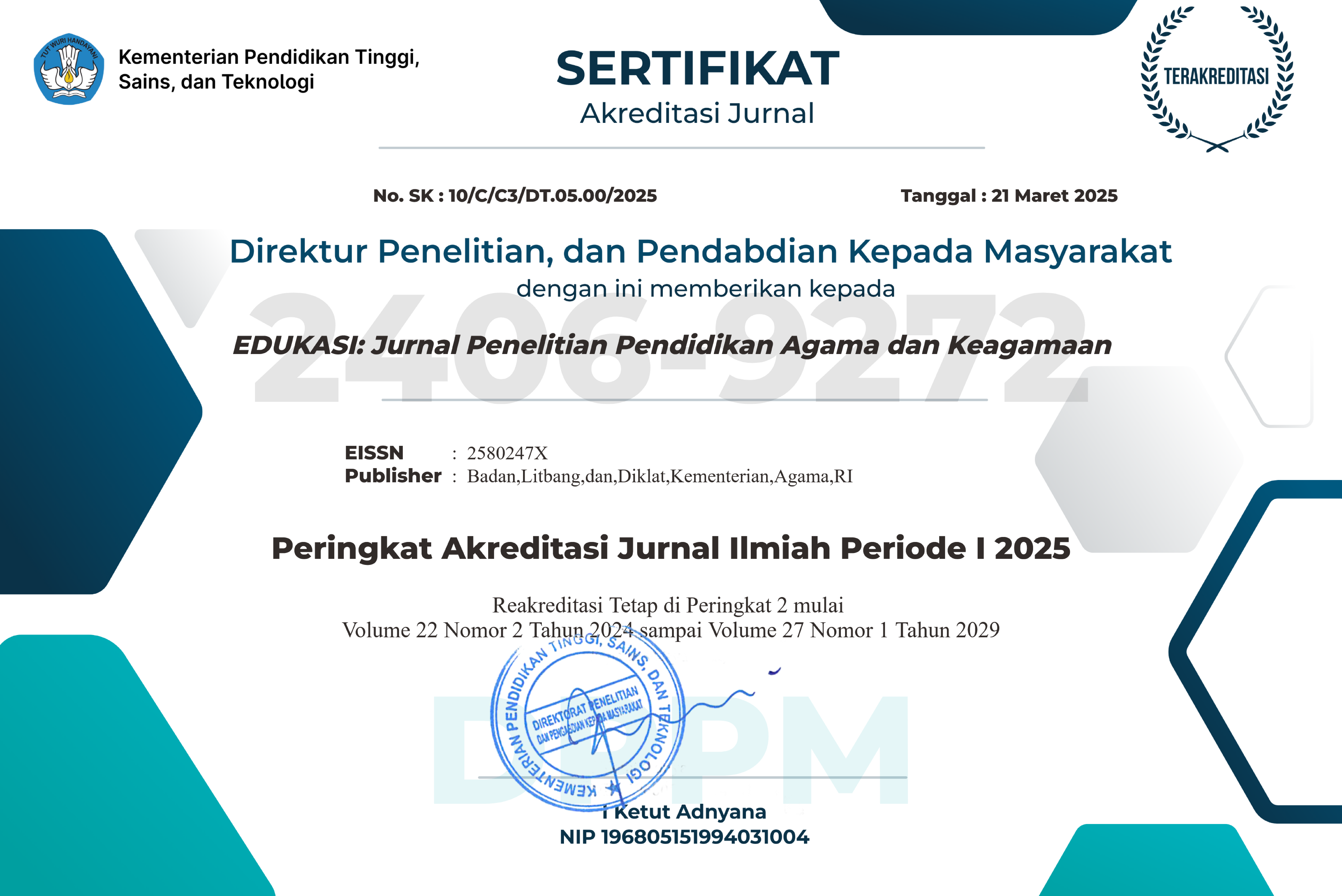Doa Al-Ma’tsurat Untuk Mencegah Covid-19 dengan Program Tatap Muka Belajar Terbatas di Pesantren Lu’lu Al-Islamy Bogor
DOI:
https://doi.org/10.32729/edukasi.v21i1.1481Abstract
This study aims to obtain information about the power of al-ma'tsurat prayer in preventing Covid-19, the reasons for not sending students home, the implementation of limited face-to-face learning programs, and the constraints surrounding limited face-to-face learning in Islamic boarding schools during the Covid-19 pandemic. This type of research is field research using a qualitative descriptive research design. The object of this research is the Lu'lu Al-Islamy Bogor Islamic boarding school. Research data obtained through observation, interviews, and documentation techniques. While the data were analyzed using an interactive data analysis model which was carried out descriptively. Based on the results of the research, it shows that Islamic boarding schools want all Islamic boarding school residents to practice the al-ma'tsurat prayer to prevent Covid-19 with the fact that thank God during the pandemic none of them were exposed to Covid 19. The reason for Islamic boarding schools not repatriating students during the pandemic, is because Islamic boarding schools are the most safe for students from the spread of covid 19. Islamic boarding schools run limited face-to-face learning programs so that the continuity of learning for students during the pandemic, by strictly regulating group activities. The obstacles to Islamic boarding school education during the Covid-19 pandemic lie in limited classrooms, resources and socio-cultural challenges.
Downloads
Downloads
Published
Issue
Section
License
Copyright (c) 2023 M Munawiroh, Achmad Dudin

This work is licensed under a Creative Commons Attribution-ShareAlike 4.0 International License.









